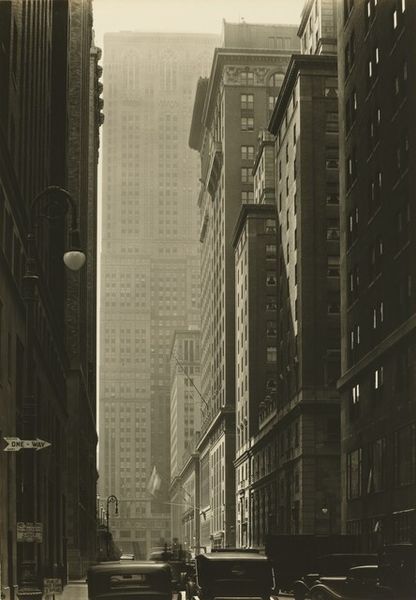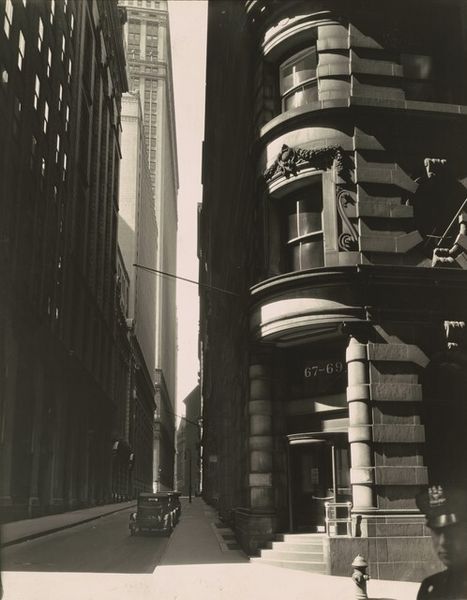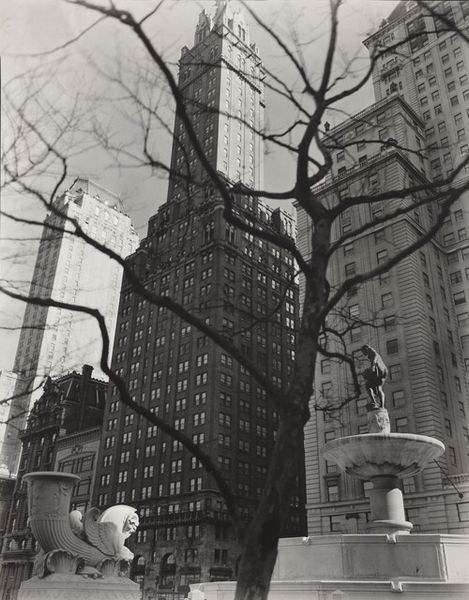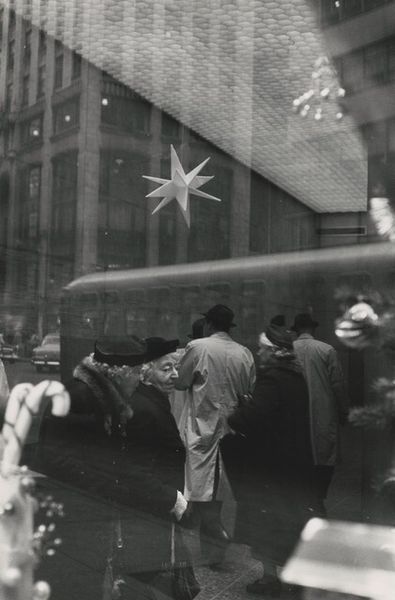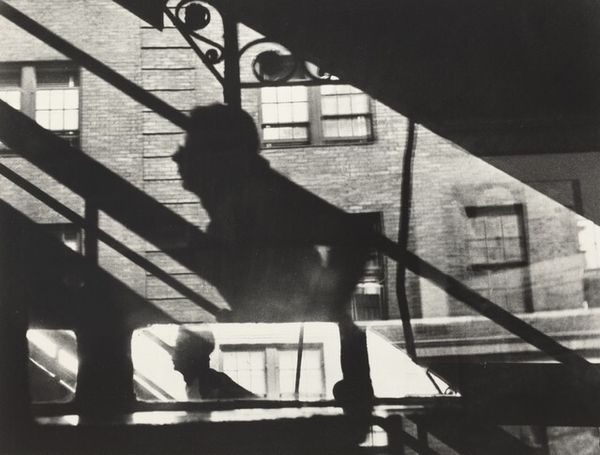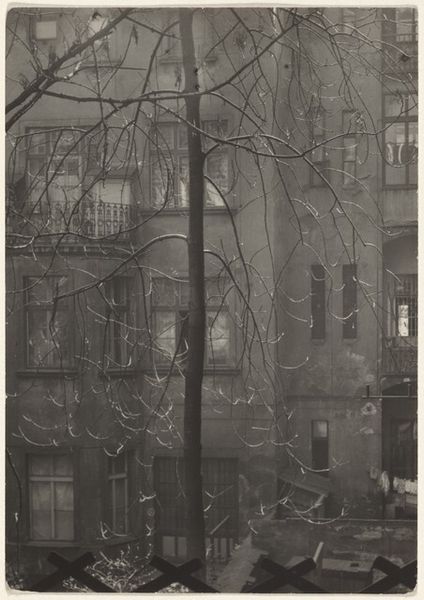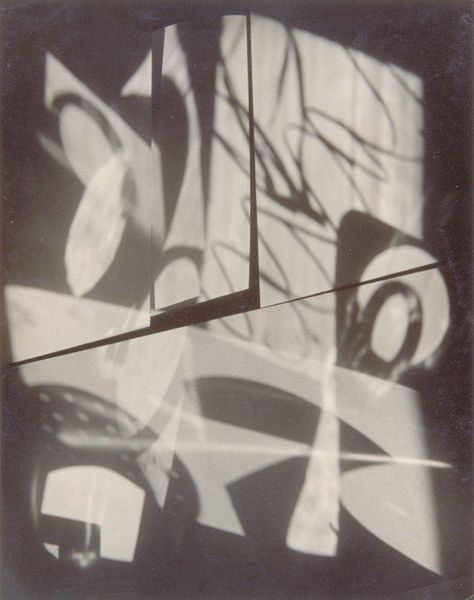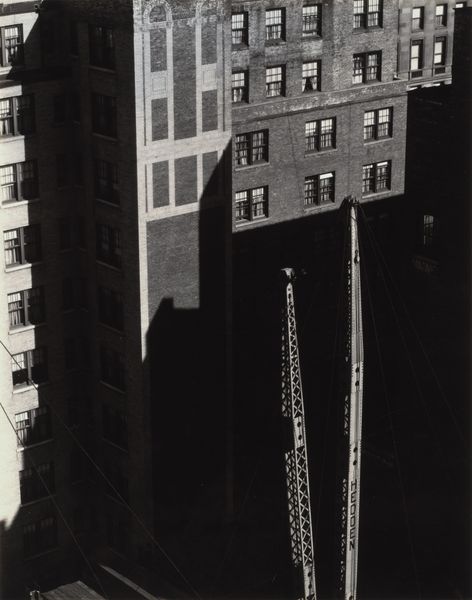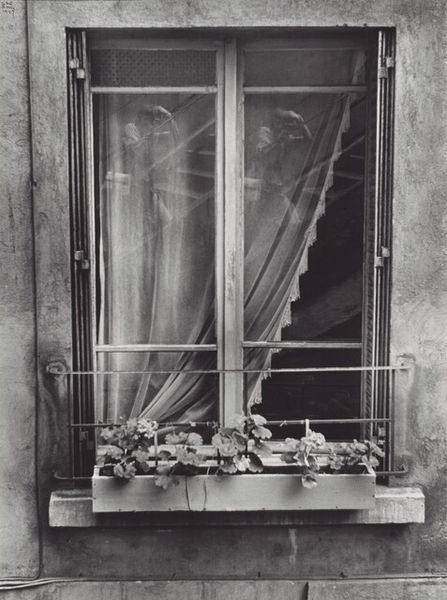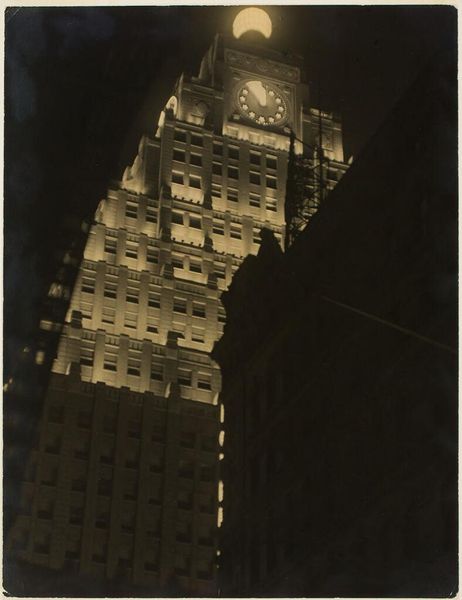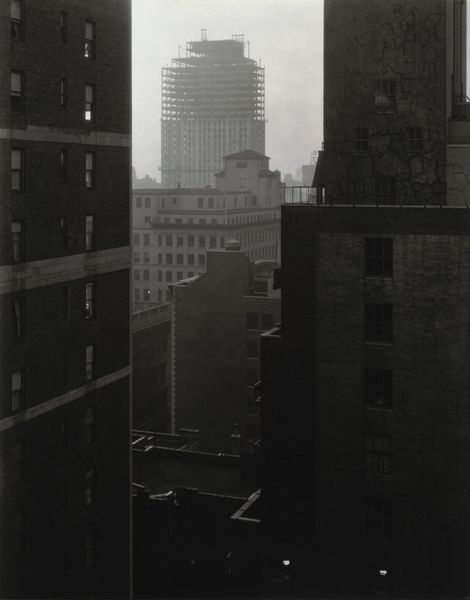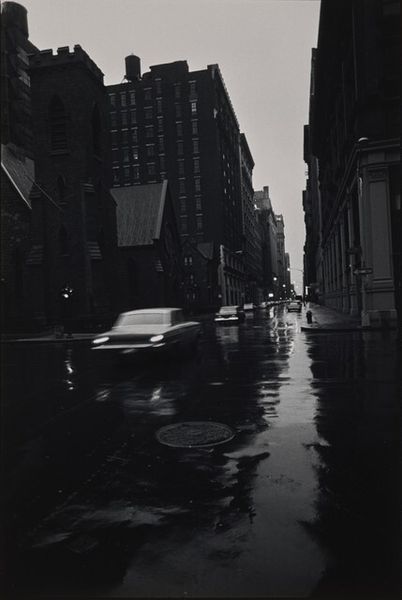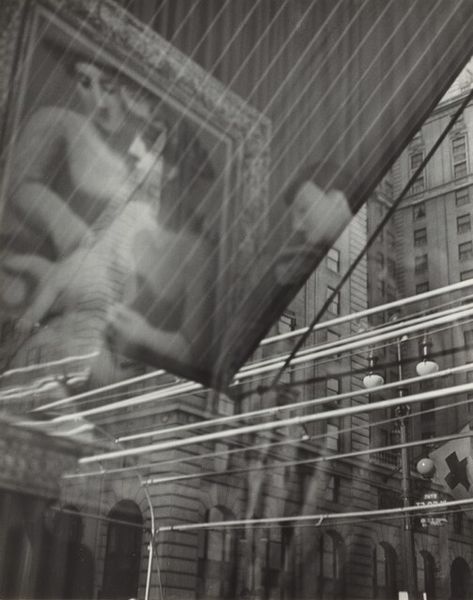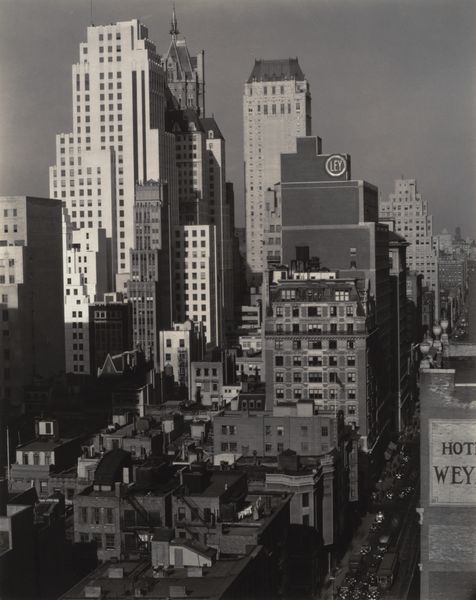
photography
#
abstract-expressionism
#
black and white photography
#
sculpture
#
street-photography
#
photography
#
monochrome photography
#
line
#
cityscape
#
monochrome
#
monochrome
Copyright: National Gallery of Art: CC0 1.0
Editor: Here we have Robert Frank's "Tickertape/New York City," taken in 1951. It's a black and white photograph, and honestly, it strikes me as quite chaotic. The swirling white lines against the stark buildings...it's a bit dizzying. What do you see in this piece? Curator: I see a fascinating commentary on post-war American society. The image, beyond its abstract quality, captures the energy and almost frenetic pace of New York City in the 1950s. It challenges the notion of a perfectly ordered urban landscape, reflecting the anxieties and uncertainties of the era. Editor: So, the "chaos" I sensed was deliberate? A reflection of the times? Curator: Precisely. Frank's work often challenged the idealized image of America presented in popular media. He documented the social realities he observed, frequently focusing on alienation and societal contradictions. The tickertape itself, historically used to transmit financial information, suggests the pervasive influence of commerce on the city’s fabric. Editor: That's interesting. It makes me think about how information overload is nothing new. But why focus on the societal contradictions, why not just present an accurate depiction of a city, as it were? Curator: Because Frank, as a photographer and an artist, uses these scenes to spark inquiry into larger questions about class, race and social order, or disorder. Are we seeing visual confetti celebrating capitalism, or does it hint at its underlying volatility? Editor: I hadn't considered the deeper implications of the tickertape. Now I’m seeing the image as a layered critique, not just a snapshot. Curator: Exactly. The beauty of art lies in its ability to hold multiple meanings. Looking at art in historical and social contexts is so rewarding. Editor: I agree! I definitely learned a new way to look at photography, especially street photography, and its potential to make social commentary.
Comments
No comments
Be the first to comment and join the conversation on the ultimate creative platform.
